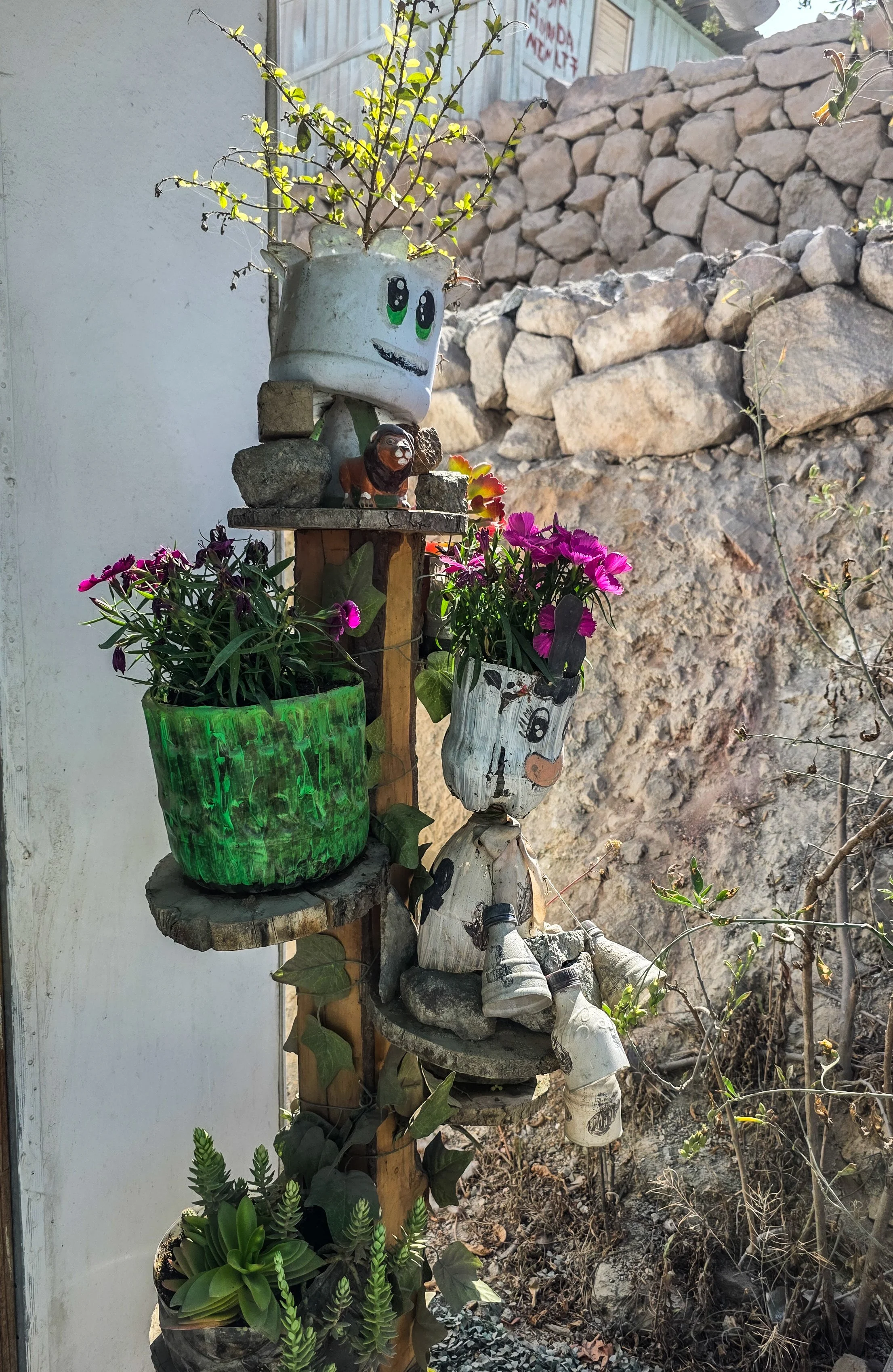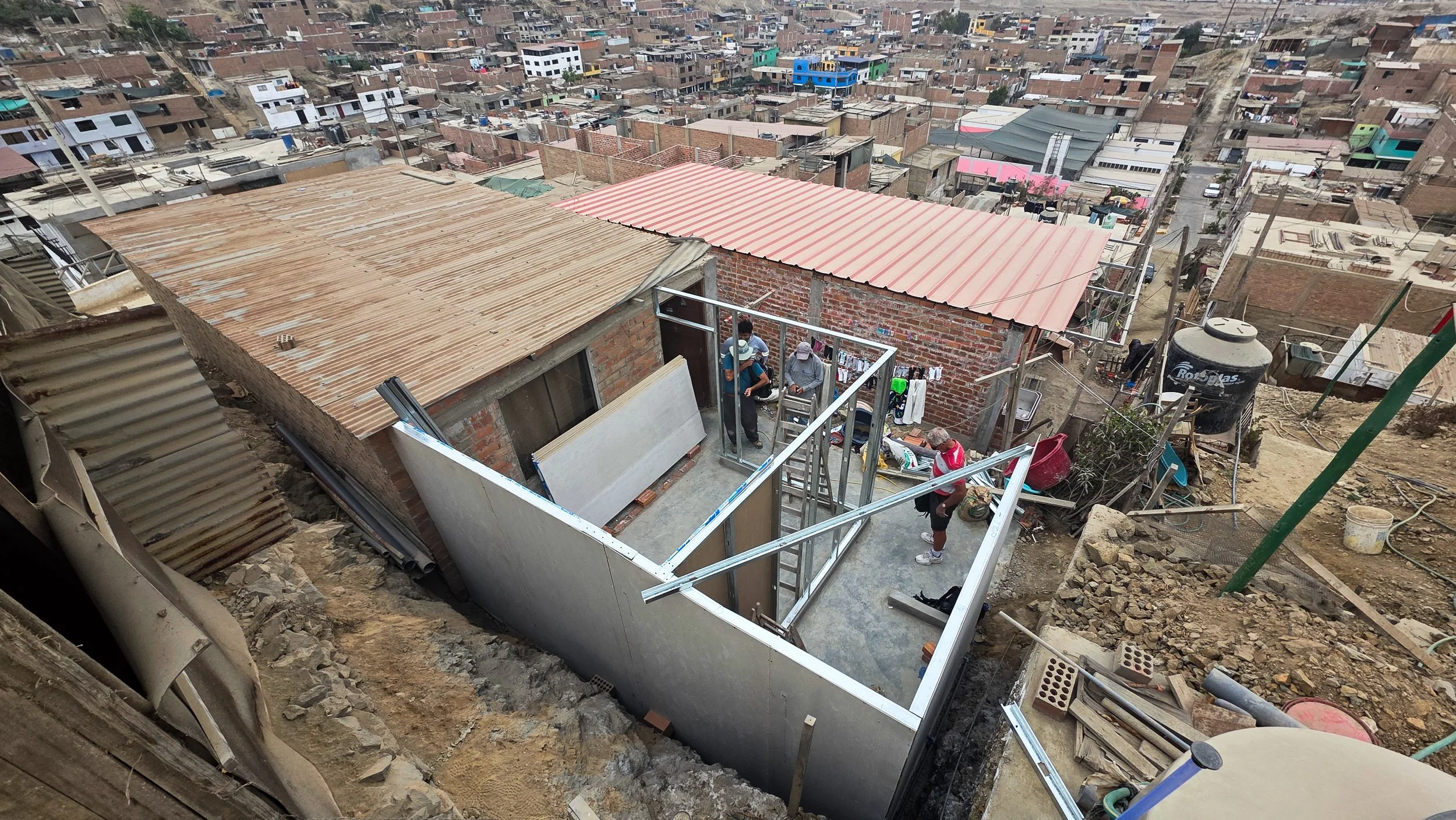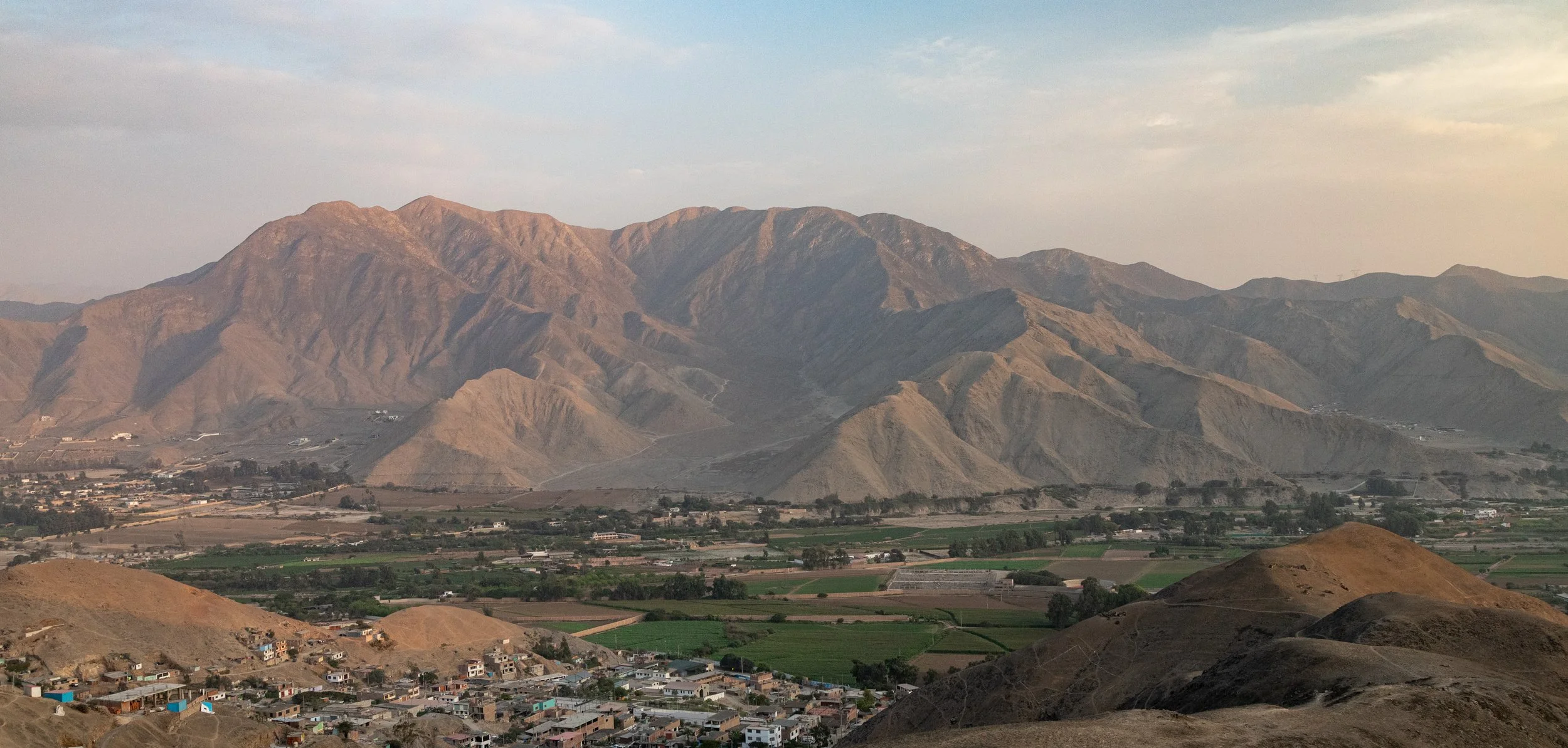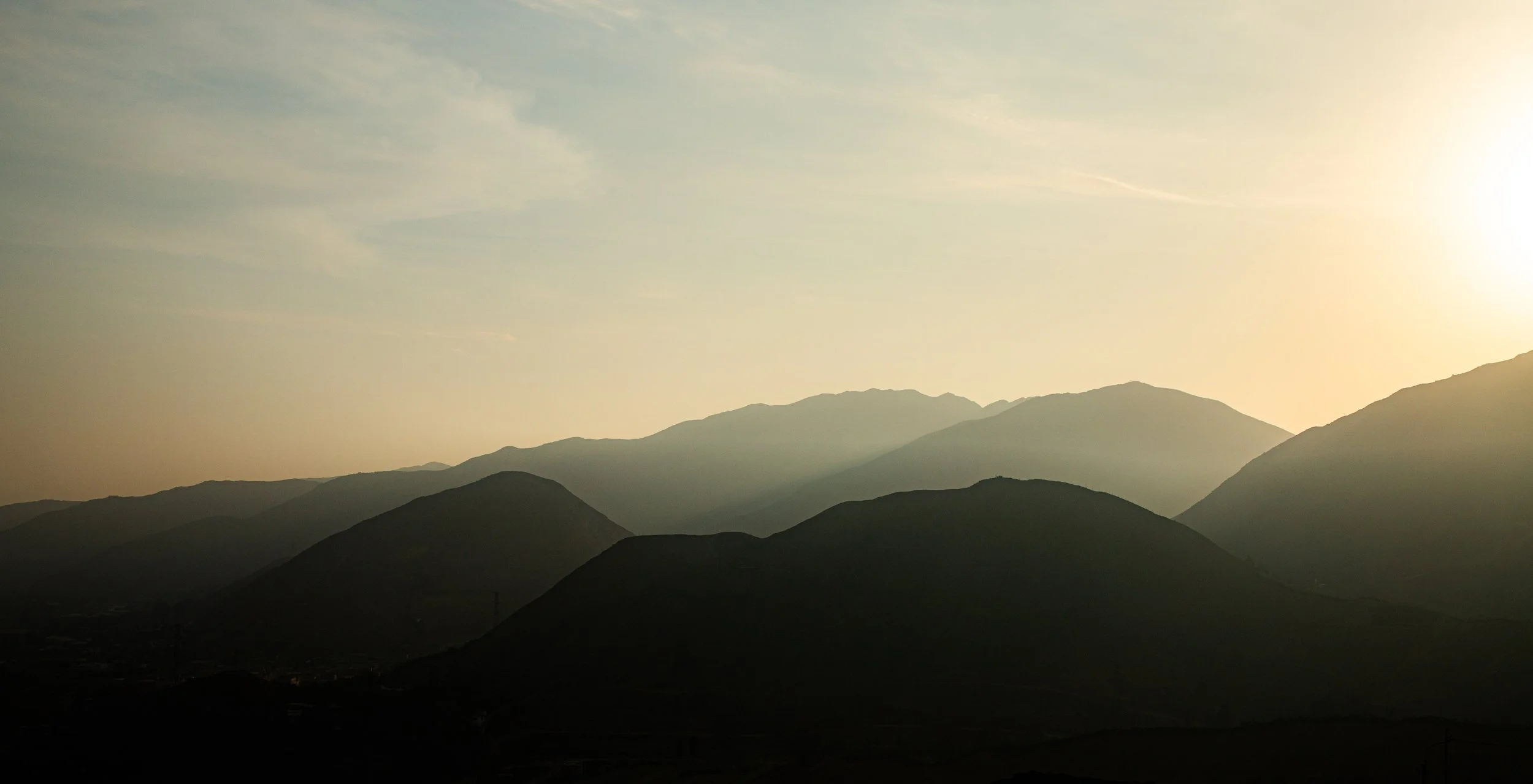Peru – Helping Cope Through Hope
Manchay, Peru
Helping Cope Through Hope is a non-profit organization based in Napanee, Ontario, Canada and is run by Tom and Cheryl Martin. Along with volunteers, they provide aid and support to families and children in need, primarily in Uganda, Zambia, and Peru.
My wife & I traveled to Manchay, Peru with HCTH with a simple purpose: to serve those in need, to remind them that God’s love has not forgotten them, and to offer hope in a world that often feels overwhelming. Our mission was practical — helping with the construction of a house addition — but what we received in return was far greater. The generosity, warmth, and resilience of the families we met blessed us in ways we hadn’t expected.
Our first stop was to visit a young woman named Katty.
In 2004, Katty was 8 years old when she met Tom and Cheryl. As a young girl growing up, Katty was always happy and eager to learn about Jesus despite a rough family life.
As a teenager, she saved her money from babysitting to buy herself a plot of land.
Katty in front of her home.
With the aid of HCTH, Katty finished primary and secondary school and went on to study Industrial Foods in college. Soon after college, she got a job making fruit juices and other products. Katty has proven that she is a realiable, hard-working employee and she will be representing her company at a food fair later this year…her first time in an airplane.
For the last five years, just before Christmas, Katty visits the mountains where her grandfather lives. The people there are very poor. She sings with the children and tells them Bible stories. She also hands out treats, clothes, and toys.
In 2022, HCTH built a house for Katty. A home that she is very proud of and excited to invite people to and show off her gardens.
Katty has a sister, named Cliset, who was also sponsored by HCTH. Through help from HCTH, Cliset completed college in Fashion and Design and currently owns her own business, Oceaniika, where she makes clothing and sells them online. Cliset is also working toward becoming a teacher.
Cliset at work creating clothing for her business, Oceaniika.
Each day we relied on overcrowded buses, small moto-taxis (known as “tuktuk” in other parts of the world), and our own two feet to make countless trips up and down the steep, dusty hills. Yet each commute was more than just a way to our work site; it became an opportunity to connect. The local people we met on the bus soon became familiar faces, greeting us with genuine friendliness despite the language barrier. One of the most joyful moments was seeing the wide-eyed curiosity & excitement of a young child who turned to his mother to exclaim (in Spanish) “Look - yellow hair and blue eyes!” We smiled and laughed in return, handing him a small toy — one of the little gifts we often carried to share with children on the bus, adding a touch of delight to the journey.
Adding a bedroom and a bathroom for Carlos, Elizabeth, Liam, and Anna, a family of four living in two rooms and using the bathroom at a family members house at the bottom of the hill.
We worked on two different houses during our time in Manchay. In this part of the world, houses are built into the sides of steep hills, with roads and pathways that are narrow and rough. It took the expert driving skills of our local team leader, Javier, to maneuver his small car as close to the job site as possible. From there, we continued on foot, carrying tools and supplies the rest of the way.
When we arrived, family members welcomed us with warm hugs, a kiss on the cheek, and stories from their lives. Throughout the day, they generously served us hot coffee, refreshing Coca-Cola, and home-cooked lunches of chicken, rice, and potatoes. At first, the language barrier made it truly difficult to connect - though translation apps helped - but in those moments of hospitality, communication, understanding, and friendships began to flourish.
On a couple of evenings, after long days of work, my wife and I climbed the mountain behind our accommodations. The path was dusty and rocky, and the landscape was barren as we looked out from above. Yet along the river flowing through the valley, bursts of colour and lush vegetation thrived, producing fruits and vegetables more vibrant and flavorful than any we had ever tasted— a striking contrast to the rugged surroundings.
From the summit, the sounds of life carried upward: children laughing as they played in the streets and on the football (soccer) ptich; buses, taxis, and cars honking politely on the roads ( the honking rarely seemed aggressive); chickens and roosters clucking feverishly in the backyards; stray dogs yiping and barking in the streets; and a single cow bellowing from a distant field, adding its voice to the chorus. However, while these moments at the top of the mountain brought a sense of peace, it was the same sounds that continued on well into the night that brought a sense of frustration - didn’t the dogs and roosters and cow realize that it was 3 o’clock in the morning?
As we looked out over the valley from atop the mountain, and as we walked through many neighbourhoods during the day, one thing that struck us was the stark contrast of poverty and wealth existing side by side. On a single street, a large beautiful home might stand directly across from a small, weathered shack. The disparity was impossible to ignore. Yet within the tension, we discovered beauty: in the kindness of strangers on the bus, in the families who welcomed us, in the hours spent working with our hands, and in the love that flowed so freely from the people of Manchay.
As we carefully made our way down the mountain back to our accommodations, we watched the sun sink behind the peaks, flooding the valley with a brilliant wash of orange light.
Our time in Manchay was more than a mission trip; it was a lesson in perspective. In a place where life is both challenging and vibrant, we discovered that hope thrives in community, in laughter, in shared meals, and in the resilience of families who continue to believe in God’s love.
We came to Peru to give, but we left with hearts full. The experience reminded us that hope is not only something we bring — it is something we receive when we open ourselves to the generosity of others. We set out to help cope through hope, but in the end, it was the people of Peru who taught us what hope truly looks like.
Following our time in Manchay, we journeyed to Cusco, Peru, where we began to explore the rich culture and history of both Peru and the Incans… but that’s a story I’ll save for another time.















